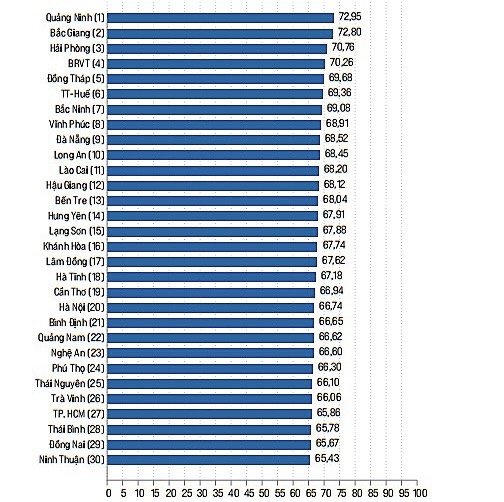Vietnam will continue to encourage investors to both develop eco-industrial parks and transition traditional to ecological ones.
The workshop themed “Eco-industrial park development in Vietnam: Institutional framework and implementation” was held by the Ministry of Planning and Investment (MPI), United Nations Industrial Development Organization (UNIDO), and the Swiss State Secretariat for Economic Affairs (SECO) in Ho Chi Minh City on September 15. Representatives of authorities, industrial parks (IPs), and economic zones discussed policies for and measures to develop eco-IPs in Vietnam.
Deputy Minister of Planning and Investment Nguyen Thi Bich Ngoc said eco-IPs play an important role in the national sustainable development strategy. However, in order to take this model to exercise its role, it needs to be multiplied nationwide, with support from policy, technology, finance, information, and a close connection mechanism between domestic agencies and international organisations.
| In the 2020-2023 period, the Swiss government is continuing to help three industrial parks in five cities and province of Ho Chi Minh City, Haiphong, Dong Nai, Can Tho, and Danang convert into eco-industrial parks in accordance with an international framework. |
“In order to encourage this model, it is necessary to issue more guidelines on technical regulations and standards by ministries and sectors as well as technical guidance from domestic and international experts, especially for industrial symbiosis networks and circular economy solutions. In addition, the investors need a commitment about preferential policies on finance to expand this model,” Ngoc said.
In the 2020-2023 period, the Swiss government is continuing to help three IPs in five cities and province of Ho Chi Minh City, Haiphong, Dong Nai, Can Tho, and Danang convert into eco-IPs in accordance with an international framework.
The support comes from a project that aims to deploy eco-IPs in Vietnam under the approach of the Global Ecological Industrial Park Programme, which will serve as a premise to multiply the model across the country.
The project’s finances are at $1.8 million, which is expected to improve the economic, environmental, and social efficiency of the industry and include regulations on eco-IP development in relevant mechanisms and policies.
Werner Bardill, consul general at the Embassy of Switzerland said, “We see that many enterprises pioneer in implementing solutions to save energy and use natural resources effectively during the operation process. We hope that more and more real estate developers will join the changing process from traditional IPs to eco-IPs.”
Between 2015 and 2019, the MPI, UNIDO, SECO, and other sponsors worked together to pilot models of eco-IPs in Ninh Binh, Danang, and Can Tho. As a result, 72 businesses have implemented more than 900 energy-saving and cleaner production solutions, which helps them to save $3.3 million and simultaneously cut 32 kilotonnes of CO2 annually.
(VIR)


